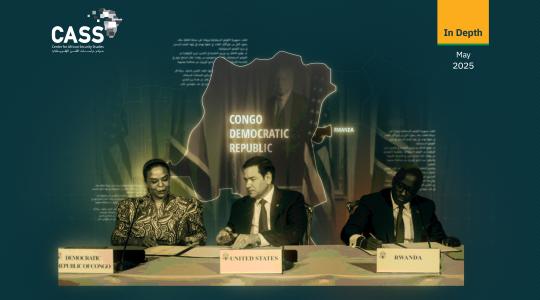On September 7, Chad’s President Mohamed Idriss Déby Itno arrived in the Hungarian capital to meet Prime Minister Viktor Orban. The two signed a strategic partnership agreement covering defense, the economy, and education, including a financial loan and in-kind assistance totaling between €150 and €200 million, aimed at strengthening Chad’s defense as well as its livestock, agriculture, food industry and water supply sectors, and to support its digital transformation.
Defense Support to Counter Illegal Migration
During Déby’s visit, the Hungarian government allocated €14 million of the €18 million it contributes to the European Union’s “European Peace Fund” to developing Chad’s defense capabilities. It also agreed to turn the Hungarian diplomatic mission in Chad’s capital N’Djamena into a permanent embassy, with the aim of establishing more effective cooperation with Chad, a major conduit for irregular migration through the African continent.
Another part of the deal was a Hungarian commitment to send at least 200 soldiers to Chad. While leaks to this effect have been circulating since November 2023, when the Hungarian parliament approved the deployment of troops overseas if needed, Budapest had waited until Deby Itno’s visit to confirm the news.
Strategic Relationship or Fleeting Visit?
It is likely that Chad and Hungary are seeking to build a bilateral partnership that enables Hungary to establish a foothold in Africa. In Europe, Hungary can portray its strategic cooperation with Chad as a tool for combating irregular migration from Africa. However, this can only be achieved through support for the economy and stability of Chad, which lies in the Sahel region and is a major gateway for refugees seeking to reach Libya and head onwards to Europe.
In this context, it is worth noting the major shift in Chad-Hungary relations in recent years. In 2018, Budapest established the Regional Center for Development and Humanitarian Aid, which it later turned into the headquarters of its diplomatic mission, and subsequently into the headquarters of the Hungarian embassy in Chad in September.
Sources with knowledge of the preparatory meetings on the deployment of Hungarian troops in Chad told the Center for African Security Studies that they were all attended by Hungarian special forces officer Gaspar Orban. The son of the Hungarian prime minister, Gaspar Orban has had personal relations since 2018 with Karimou Déby, the Chadian president’s half-brother. The two have met repeatedly since then in a kind of “family diplomacy” in which the two men operate as liaison officers between their two countries.
Déby and Orbán’s Quest for Influence
Chad’s geographical location has turned it into an island of stability in sea of escalating conflicts, since 2020, starting with the Sahel countries—which have seen successive coups and rising influence by jihadist groups—and by the civil war in neighboring Sudan, between the Rapid Support Forces and the Sudanese army since April 2022. Chad now hosts more than 500,000 Sudanese citizens on its territory, in addition to tens of thousands of people displaced from Niger and Nigeria.
This situation offers both Hungary and Chad strategic and political opportunities.
Hungary is able to play a role in combating irregular migration as well as expanding its investments in Chad, which has significant economic resources. Hungary has not participated in any military mission outside its borders since its troops left Afghanistan in August 2021. This means it sees its role in training Chadian forces and working to combat irregular migration as an opportunity to establish its presence internationally, in the context of a particularly thorny issue between Africa and Europe, especially after several Western countries such as France and the United States withdrew from Niger and Mali in 2023 and 2024.
In parallel, some sources suggest that Hungarian Prime Minister Orban, who is keen to gain more influence and power by emulating Russian President Vladimir Putin, is trying to score political points from the fact that certain EU countries such as France have become deeply unpopular in the Sahel countries. Orban has also adopted strongly right-wing policies towards illegal refugees in Europe, as well as opposing neoliberal ideology.
As for the Chadian president, a military and economic partnership with Hungary would strengthen his authority and bring him closer to the Russian geostrategic camp, as opposed to that of Europe and the West.
His acceptance of a Hungarian military presence in his country also sends an important message to both to his domestic audience and the international community: it notifies his rivals from his Zaghawa tribe, other local forces, and foreign actors—including in Sudan—that there are foreign forces in the country capable of protecting him were he to be directly threatened.




